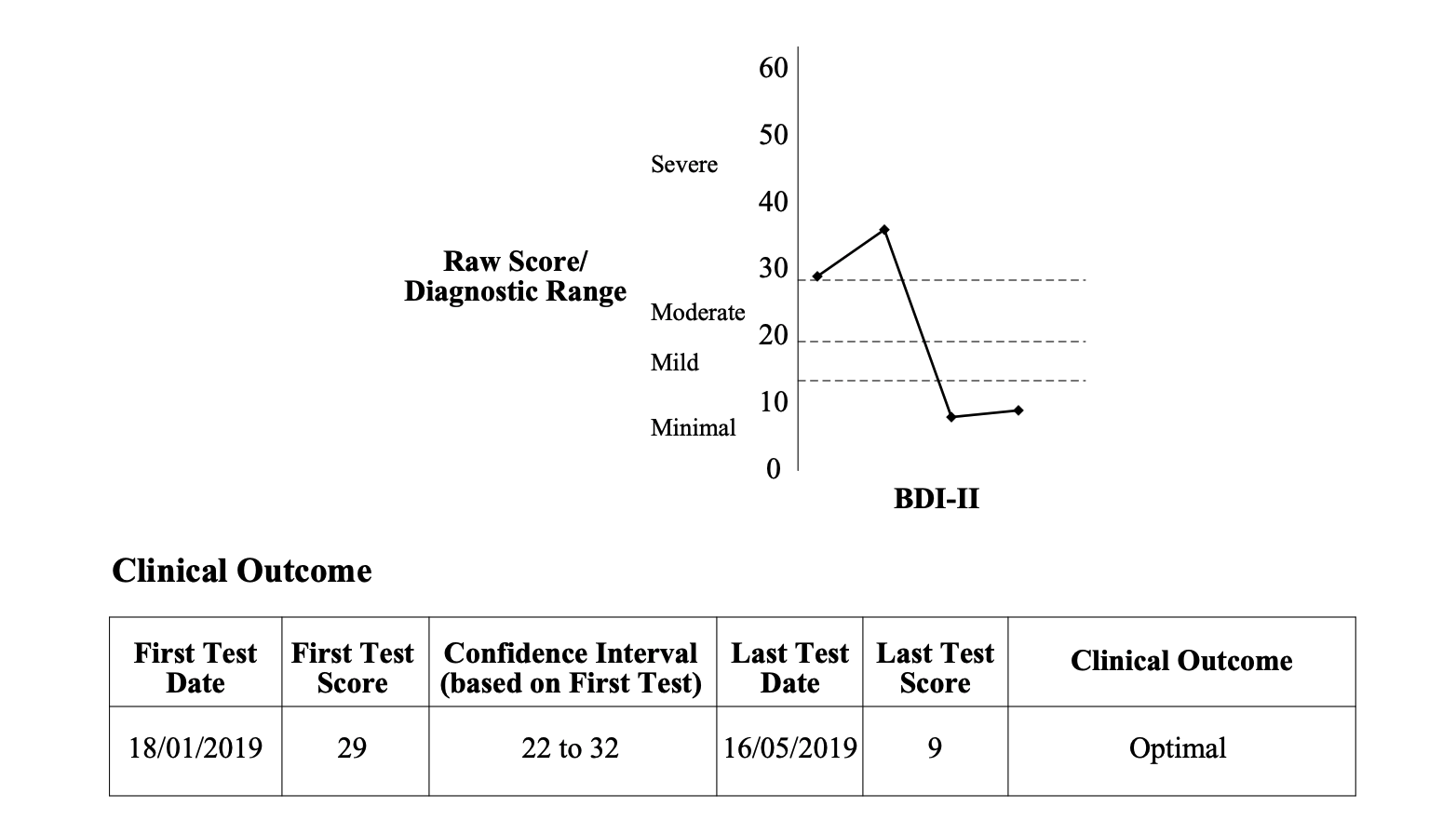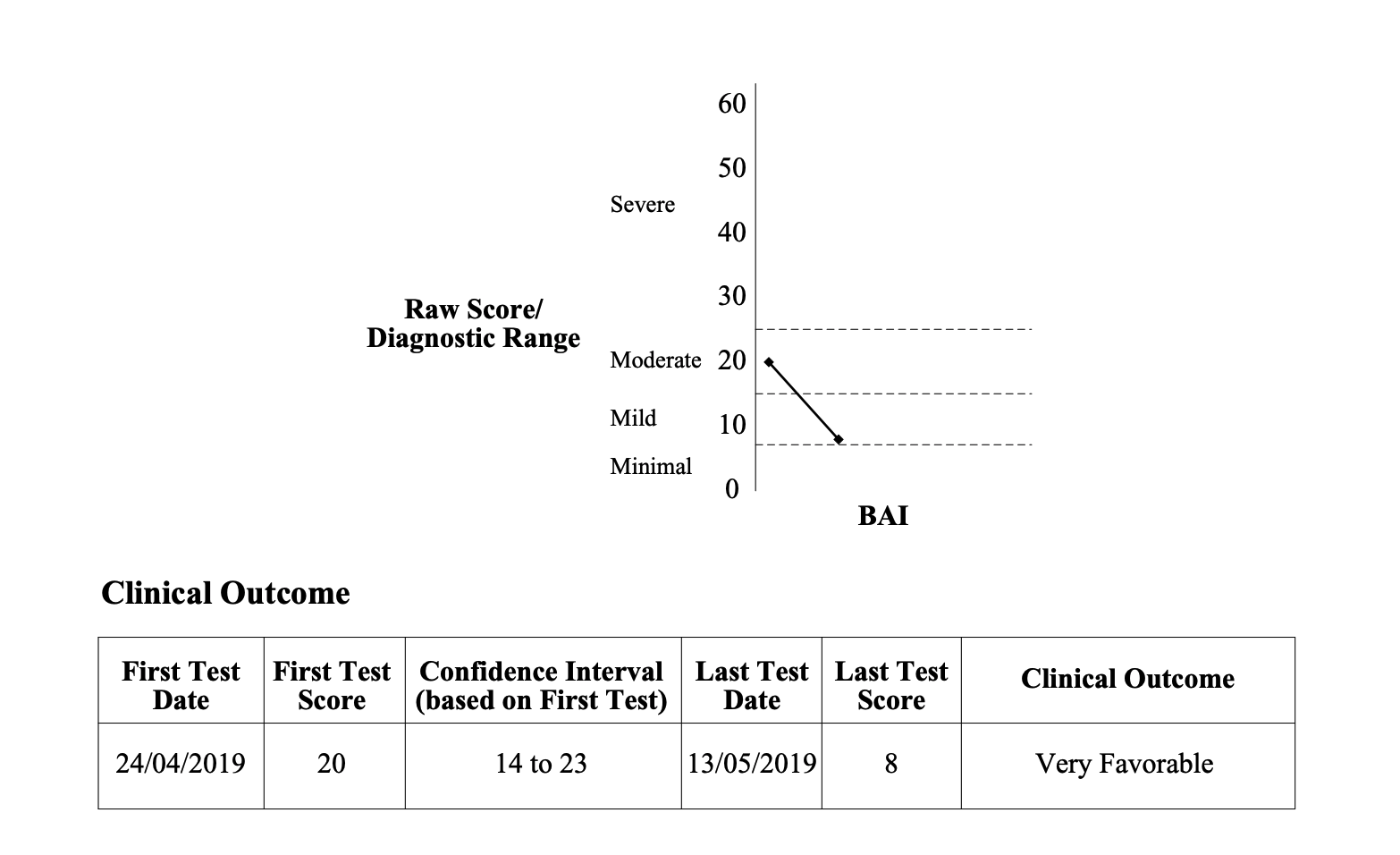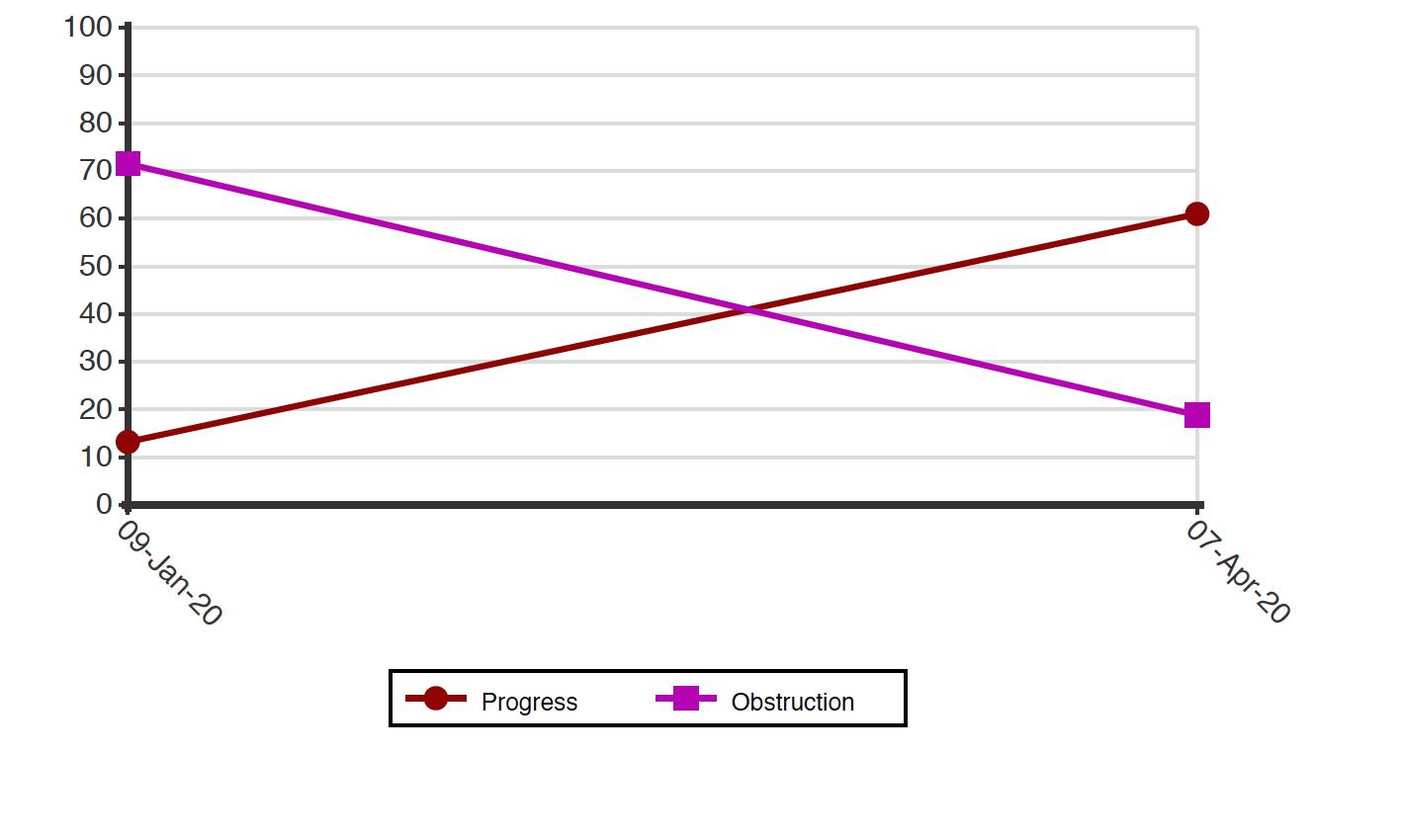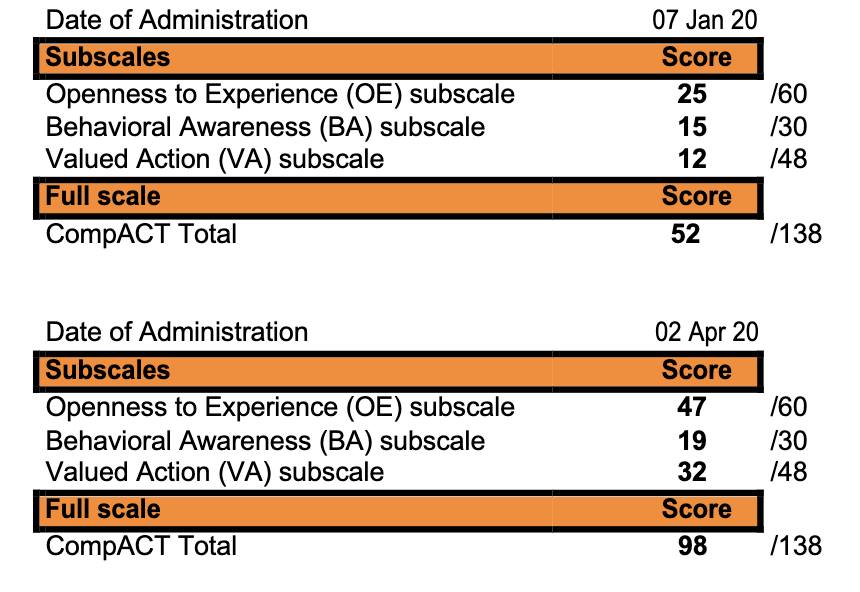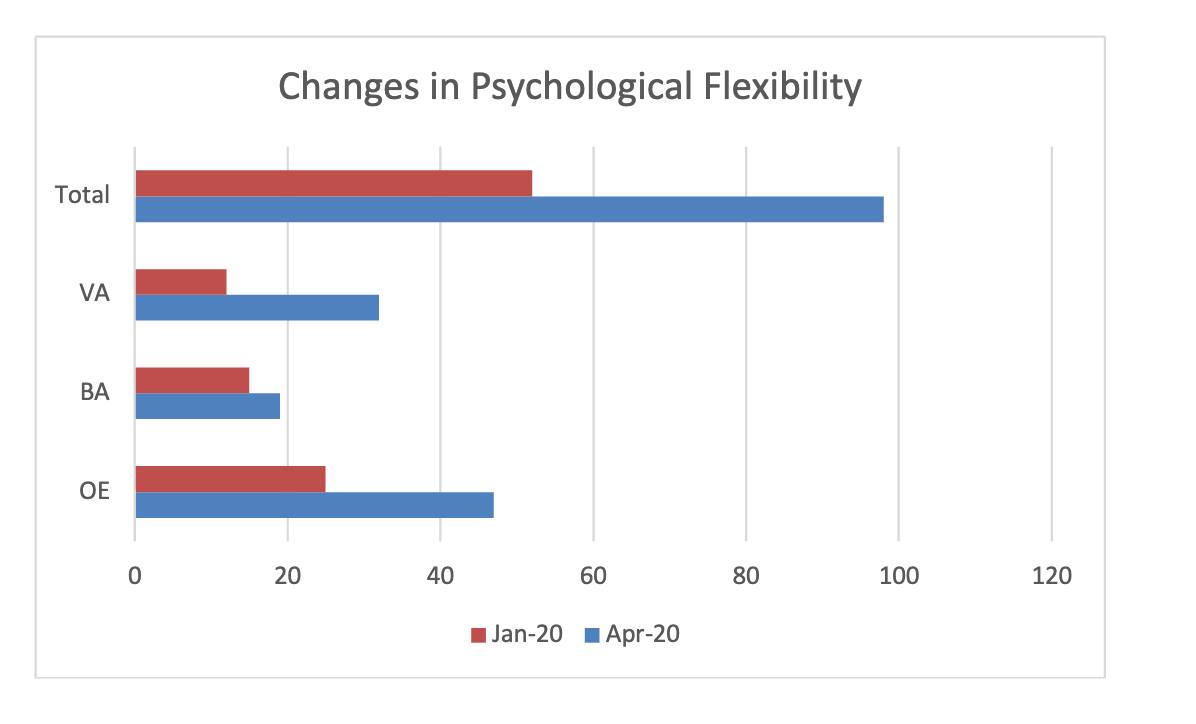Many of the people who consult me have had previous trials of intervention, therapy and/or medication. Understandably they are very clear about the change they want to see in their lives, the sort of people they want to be, lives they want to have and outcomes they want.
Professor White has specific expertise in identifying, describing and quantifying changes in psychological processes and outcomes and is highly trained in the selection and integration of validated measures into psychological intervention plans.
This page outlines graphically the positive impact of psychological intervention on symptoms.
In each of the graphs below the points on the graph (moving from left to right) are separate points over time when symptoms are assessed in detail. The higher the number the greater the severity of symptoms.
Severely Depressed & Actively Suicidal - Successful Treatment of Major Depressive Episode in 7 Sessions
This patient was referred by their General Practitioner with a request for specialist opinion on worsening symptoms of depression despite the prescription of antidepressant medication and previous appointments with therapists (who my assessment revealed had not identified key maintaining factors in symptoms and had in fact contributed to increasing levels of hopelessness). They had been experiencing severe depressive symptoms for several years and when first seen was actively and acutely suicidal.
Severe and Disabling Obsessive Compulsive Disorder - Significant Reduction in Symptom Severity in 1 Session
This patient was referred by their General Practitioner urgently on account of severe and debilitating symptoms of anxiety and panic that had prompted him to prescribe increasingly large doses of anti-anxiety medication. Assessment identified that they were experiencing obsessive-compulsive disorder (not identified by the GP) and intervention was commenced at the end of the initial assessment session.

